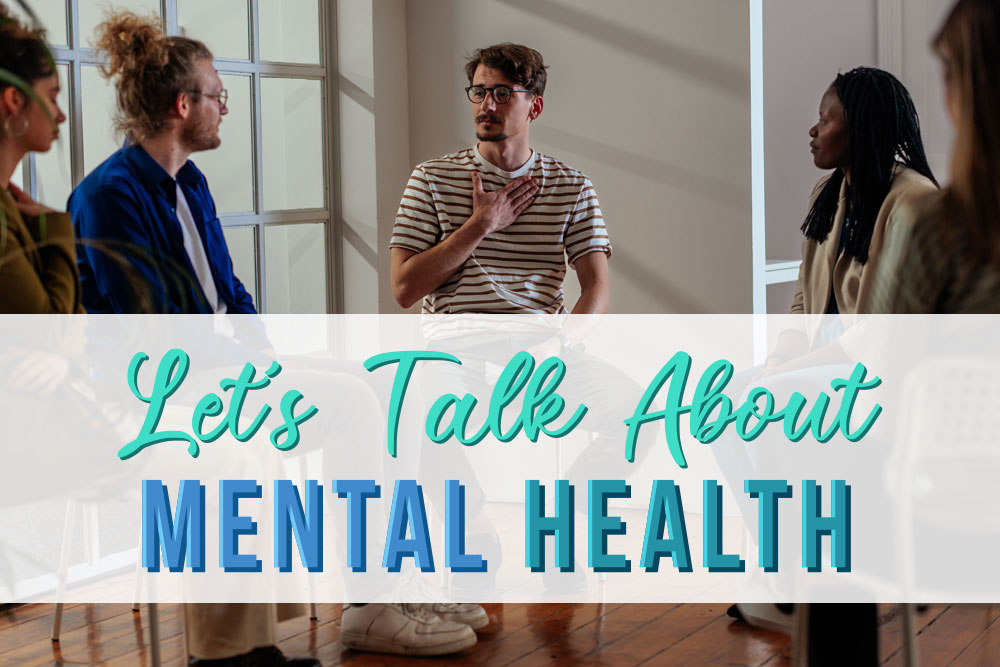
October 10th is World Mental Health Day.
The day will mark just over three decades of the event. And in that time, our awareness and understanding of mental health have grown – thanks partly to international campaigns like World Mental Health Day.
But there’s obviously still work to be done. Even in the UK, where mental health is legally protected and support is available, stigma is still common. Too many of us still suffer in silence rather than ask for help. In other places, mental health care is actively denied.
And that’s why we still need World Mental Health Day. It drives positive change, opens minds and reminds us why we must look after our own and others’ mental well-being.
30 Years of World Mental Health Day
The first World Mental Health Day happened on 10 October 1992, and it’s been observed on the same date every year since then.
Launched by the World Federation for Mental Health (WFMH), the event has since expanded, with organisers partnering with the World Health Organisation (WHO) and other third parties to maximise the campaign’s reach.
The overall objective has remained the same in all that time: to raise awareness of mental health issues and mobilise support everywhere.
But progress isn’t always consistent and the conditions that aggravate mental health issues – conflict, oppression, inequality – are never static. So, a new theme is adopted each year. This way, the WFMH, which still sets the theme, can highlight a particular issue and focus support where it’s needed most.
World Mental Health Day 2022 was an excellent example of this reactivity. In the wake of the protracted COVID-19 pandemic, last year’s event was focused on making mental health and well-being for all a global priority again after two years of widespread isolation and anxiety.
World Mental Health Day Theme 2023
This year’s event champions mental health as a human right.
Organisers promote the message ‘Our minds, our rights’ to remind us that mental health is a universal human right. However, this fact isn’t recognised everywhere and various issues across the globe are limiting access to mental health care. In response, WHO and WFMH are working to have three rights recognised internationally:
- Everyone has a right to be protected from mental health risks
- Everyone has a right to access good quality care
- Everyone has a right to liberty and inclusion in their community
Key Messages
The central message – mental health is a universal human right – is the most important takeaway of the event. But with such a significant theme, it can be challenging to know how you can actually support it.
So, eight key messages underpin the central one:
- Good mental health is an integral part of overall health and well-being
- Everyone should have access to quality mental health care
- Mental health conditions are a significant threat to the well-being of young people
- We must challenge the stigma and discrimination that still surrounds mental health
- We all have the right to live independently and be included in the community
- Good quality community mental health services and support are crucial for all our futures
- Recognising mental health is a universal human right empowers people to stand up for their rights – and the rights of those around them
- Everyone’s minds are different, but our rights are the same
These messages aren’t ranked in any particular order of importance. Other communities may already have achieved the stated objectives or are progressing well.
In the UK, despite issues, mental health care is generally available and most people recognise that it’s vital for our overall well-being. But that doesn’t mean we can ignore the messages World Mental Health Day is trying to deliver.
Why the Event Matters
The Mental Health Foundation has collected and analysed available data to create a picture of mental health in the UK. Some of the most sobering statistics include:
- Up to 10% of people in England experience depression in their lifetime
- Around 20% of all lost work days in Britain are caused by mixed anxiety and depression
- Poorer or disadvantaged people are disproportionately harmed by common mental health disorders
- Around one in six adults in England experience a common mental health problem, such as anxiety or depression, every week
That last statistic puts England below the rest of the world regarding mental health. According to WHO, mental health conditions affect one in eight people globally.
How You Can Show Support
As with most campaigns, you can fundraise or donate to help financial progress. You can also take direct action and join (or start) an event supporting World Mental Health Day.
If you’re inspired, a good place to start would be downloading WFMH’s official event toolkit – it gives instructions for organising a demonstration and links for making direct donations.
But your support shouldn’t be limited to one day or an official event. World Mental Health Day is all about raising awareness and breaking stigma, so one of the best things you can do is get talking about the issue.

Talking About Mental Health
Talking about mental health isn’t easy. Opening up about your own struggles leaves you vulnerable. Too many of us deny there’s an issue, feeling that our problems aren’t worth someone’s time or support.
Hearing someone else talk honestly about their mental health can be equally tricky. We can feel awkward or pressured to offer solutions when listening is often enough.
The Mental Health Foundation offers advice to make people more comfortable discussing their mental health. Every conversation will be different, but generally, you should:
- Think about where the conversation’s happening – Find somewhere private without distractions where everyone feels comfortable
- Give the conversation your full attention – Actively listen and ask questions without trying to steer the conversation
- Ask what you can do to help – Everyone’s situation is unique and offering advice without considering what the other person actually wants risks alienating them
Mental Health at Work
Many people suffer mental health issues as a direct result of work-related stress or anxiety, which means work is going to be a common factor in many conversations. Depending on your role, you might be responsible for supporting colleagues through challenging times or promoting mental well-being in your workplace.
Investing in training, like our online Mental Health Awareness course, helps eliminate stigma and facilitates honest workplace conversations around the issue. Trainees will learn more about common health problems and develop the understanding to talk productively with colleagues. They also learn how to protect their own and others’ mental health at work, helping to improve morale and create a work environment that supports its employees.








































































































































































































































































































































































































































































































































































































































































































































